Psychoactive parasitic fungus turning cicadas into hyper sexual ‘zombies’
Researchers have found a population of cicadas infected with a parasitic fungus turning them into “zombies” obsessed with mating.
Researchers have found a new population of cicadas infected with a parasitic psychoactive fungus turning them into “zombie” cicadas obsessed with mating.
The cicadas, found in three states across the US, are infected with a fungus known as Massospora, which researchers say “manipulates male cicadas into flicking their wings like females” which is “a mating invitation”.
The “trickery” tempts males to mate with other male cicadas, which researchers from West Virginia University believes helps to spread the fungus.
The fungus’ spores “gnaw away at a cicada’s genitalia, butt and abdomen, replacing them with fungal spores”, Brian Lovett, the study co-author and post-doctoral researcher with the Davis College of Agriculture, Natural Resources and Design said. The spores on the cicada then “wear away like an eraser on a pencil”.
He said the way the virus transmits is similar to rabies, which modifies the behaviour of the host.
The findings, titled “Behavioural betrayal: How select fungal parasites enlist living insects to do their bidding,” were recently published in the journal PLOS Pathogens.
RELATED: Australia Zoo’s very tall giraffe takes out record
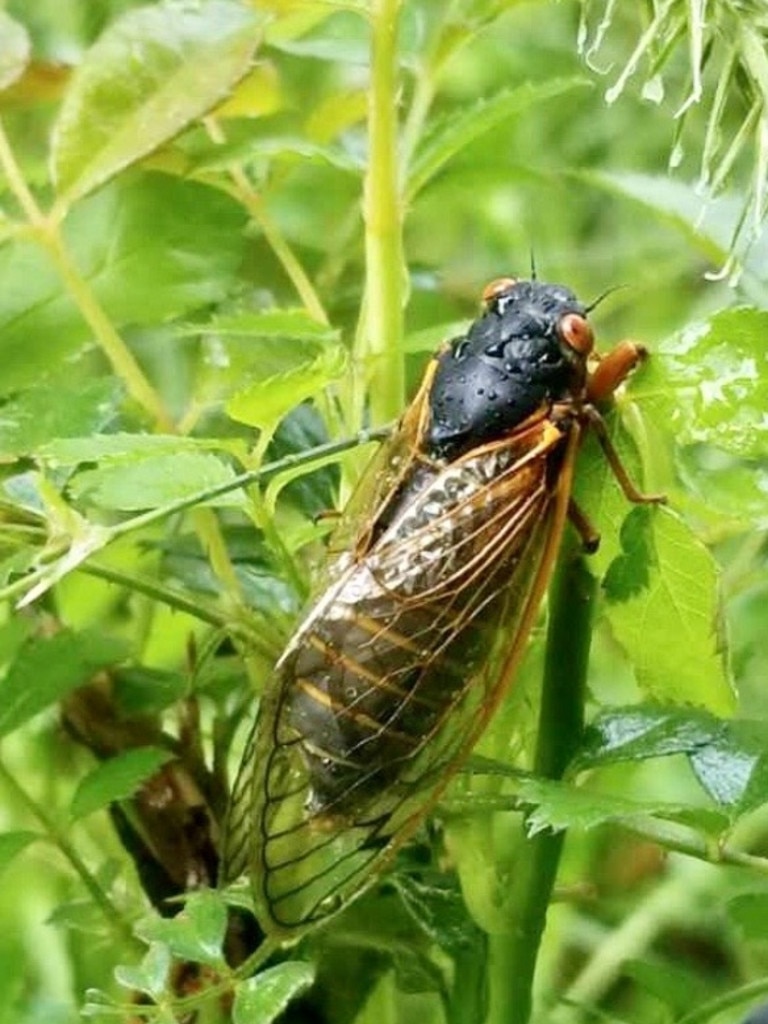
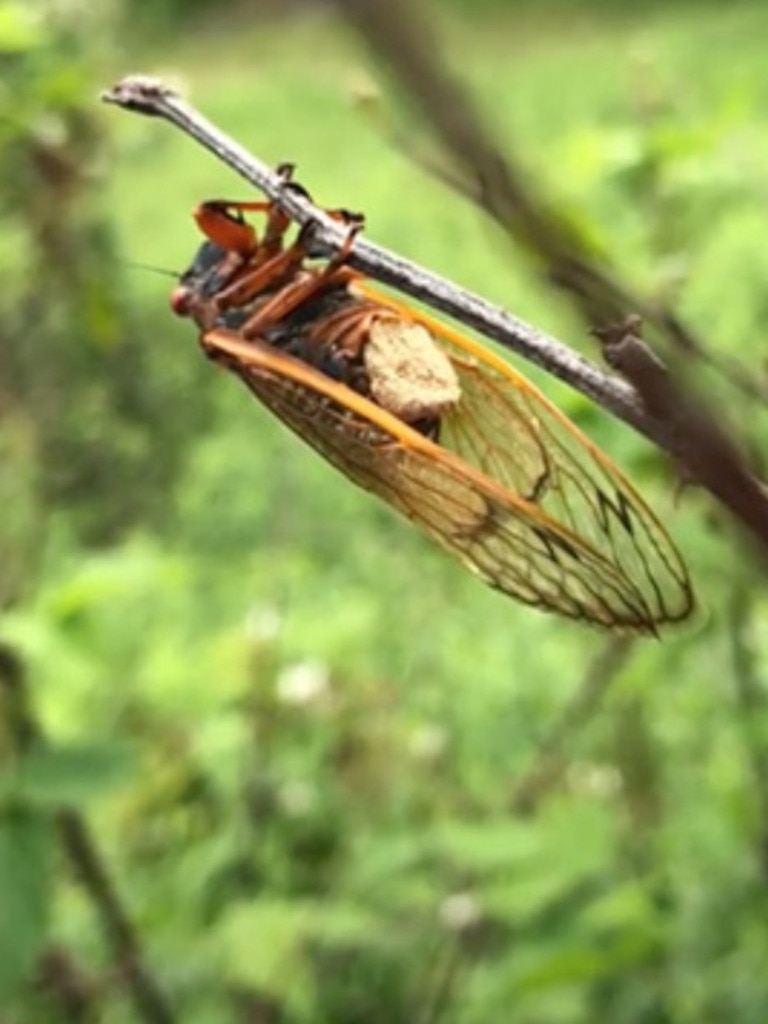
“Essentially, the cicadas are luring others into becoming infected because their healthy counterparts are interested in mating,” Lovett said.
“The bioactive compounds may manipulate the insect to stay awake and continue to transmit the pathogen for longer.”
He said both rabies and entomopathogenic fungi (parasites that destroy insects) the pathogens use their living hosts “active host transmission,”.
“When you‘re infected with rabies, you become aggressive, you become afraid of water and you don’t swallow,” Lovett said. “The virus is passed through saliva and all of those symptoms essentially turn you into a rabies-spreading machine where you‘re more likely to bite people.
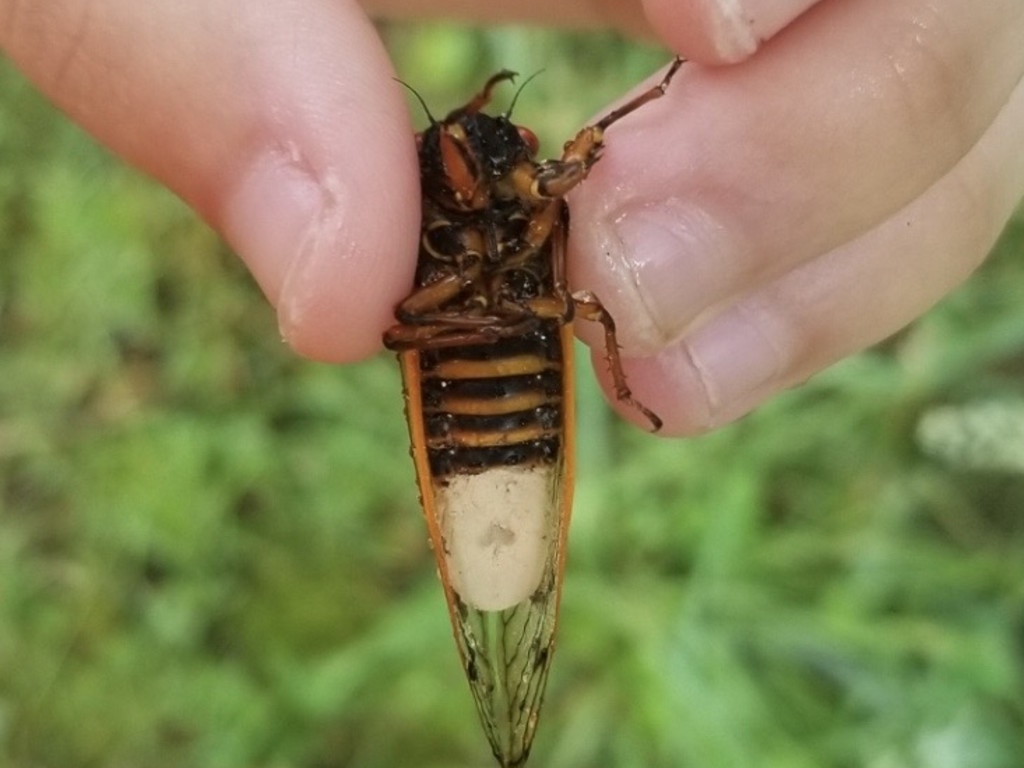
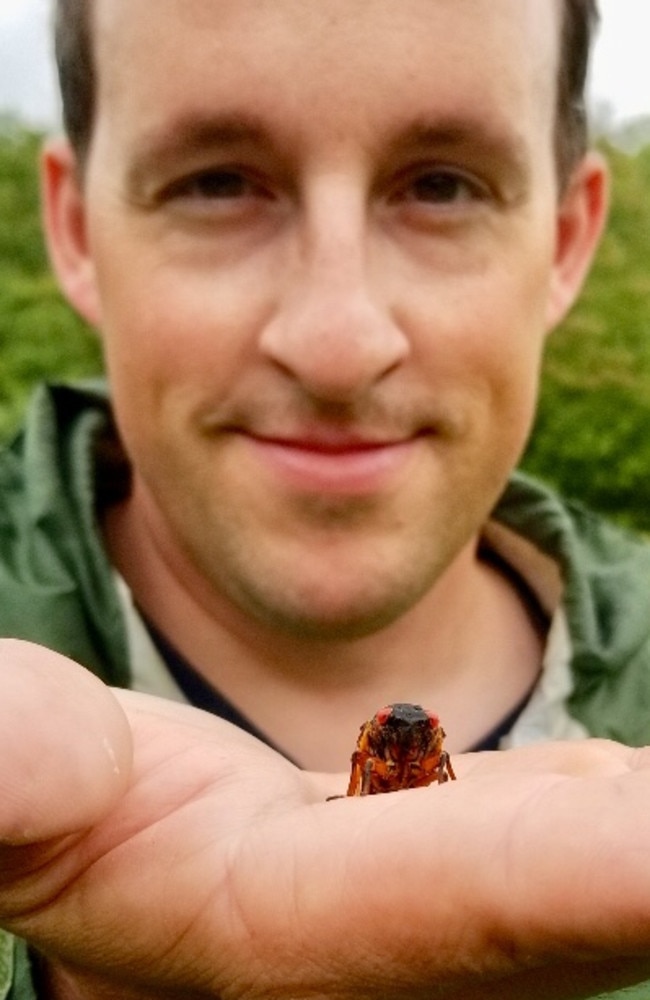
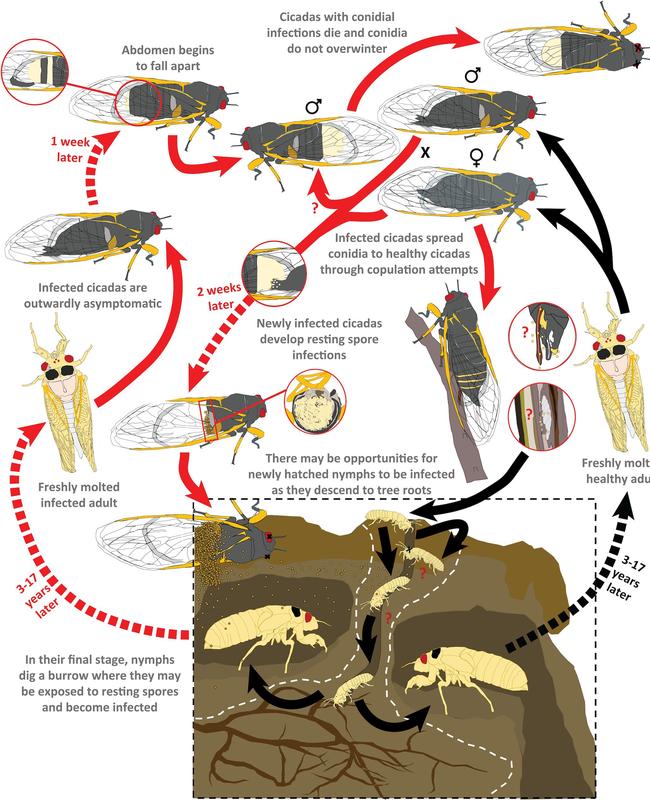
“In that sense, we‘re all very familiar with active host transmission. Since we are also animals like insects, we like to think we have complete control over our decisions and we take our free-will for granted.
“But when these pathogens infect cicadas, it‘s very clear that the pathogen is pulling the behavioural levers of the cicada to cause it to do things which are not in the interest of the cicada but is very much in the interest of the pathogen.”
Matthew Kasson, the paper’s co author and an associate professor of plant pathology and mycology discovered the Massospora-infected cicada had psychoactive compounds last year.
Psychoactive means a chemical that affects an animal’s mental state or brain function.
“They are only zombies in the sense that the fungus is in control of their bodies,” Prof Kasson said.
Prof Kasson said it had previously been accepted the cicada nymphs were being exposed to Massospora in their 17th year when they emerged from the ground as adults. But the research team now believe they might be exposed to it as young cicadas when they first enter the ground.
“The fungus could more or less lay in wait inside its host for the next 17 years until something awakens it, perhaps a hormone cue, where it possibly lays dormant and asymptomatic in its cicada host,” Prof Kasson said.




